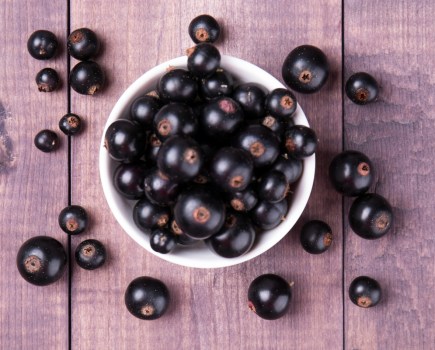Discover the top nutrients, diet tips and life hacks for boosting your body’s immune system this winter, whatever the weather…in a handy A-Z format!
A IS FOR… ANDROGRAPHIS PANICULATE

This traditional Indian herb has been used for centuries to treat diseases and fight infection. Known as the king of bitters, andrographis has potent antibacterial properties and can fight most pathogens, especially chest infections and the flu.
Find it in EquiLondon Immunity Edition (£33 for 30-day supply).
B IS FOR… BRUSSELS SPROUTS
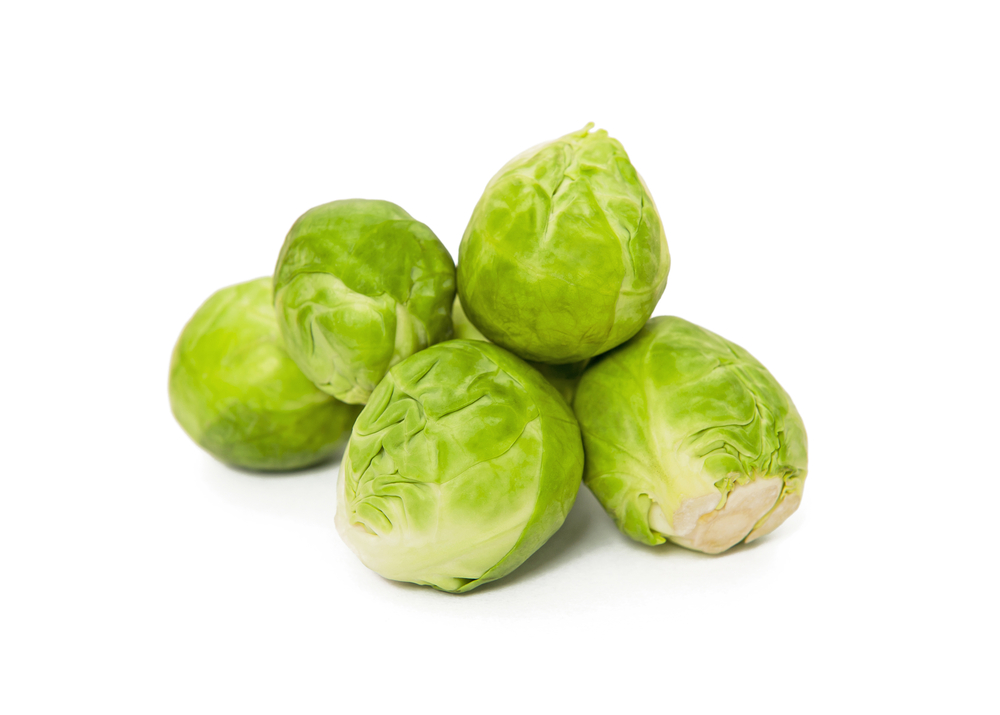
These Christmassy vegetables pack a punch when it comes to vitamin C, which is crucial for boosting your immune system. Half a cup provides 81 per cent of your recommended daily intake of the vitamin. Get them on your plate now rather than just saving them for your Christmas roast dinner!
TRY THEM: One way to cook sprouts to make them tastier is to fry them with thin strips of bacon or lardons – even the most die-hardsprout hater won’t be able to resist!
C IS FOR… VITAMIN C
‘Foods containing vitamin C help the body grow and repair body tissues, so that they can help you get back to full health faster. There is even some evidence that vitamin C can help reduce your cold symptoms by up to one and a half days,’ says Thomas Hal Robson-Kanu, a functional nutritionist and founder of The Turmeric Co.
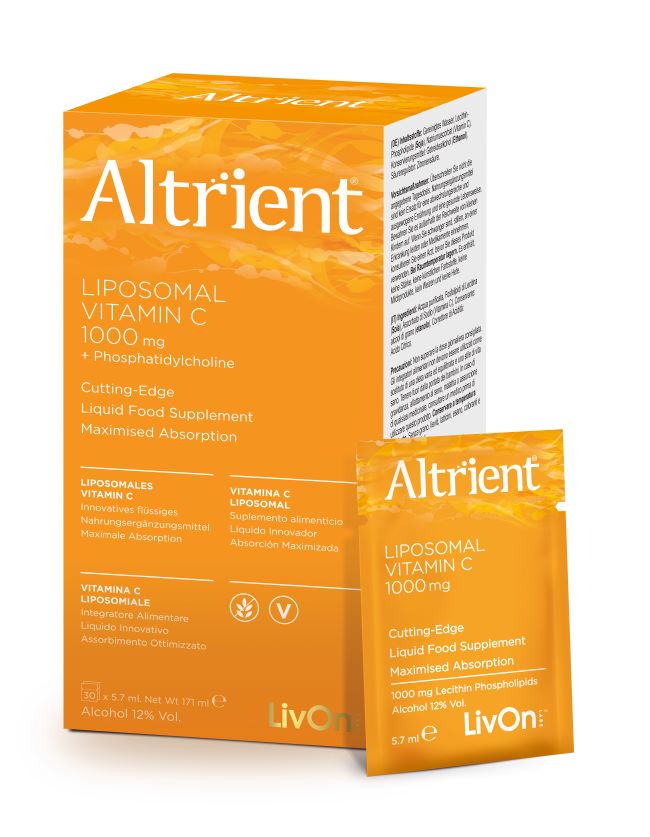
TRY IT: Some of the best foods that contain vitamin C are green peppers, kale, blackcurrants, kiwis and oranges. Also try Altrient C (£44.50 for 30). These liposomal sachets contain 1,000mg of vitamin C, which is more absorbable than powders. Stock up for winter!
D IS FOR…VITAMIN D3
Foods containing vitamin D3 are especially important for your immune system. ‘Its anti-inflammatory and immunoregulatory properties contribute towards normal functioning of the immune system. Vitamin D3 has also been known to aid the function of immune cells, helping the body fight against germs,’ says Thomas Hal Robson-Kanu.
Foods rich in vitamin D3 include fatty fish, mushrooms and egg yolk. Alternatively, take a 1000iu supplement daily, minimum, throughout winter.

Most vitamin D supplements come from animal sources but vegan versions are becoming popular. Try Together Health Vitamin D3 (£6.99), which uses bioactive planted-sourced vitamin D3 from sustainable wild-grown lichen.

Or there’s Manuka Doctor Vitamin D Spray with Manuka Honey & Propolis 500 M.E.D. (£9), which soothes sore throats while the vitamin D helps with immune function.
E IS FOR… EXERCISE

Keeping fit is one of the best ways to help your immune system stay strong. As you exercise, disease-fighting white blood cells circulate more rapidly. This means they are more likely to detect illnesses and fight them off earlier.
‘Exercising also increases your heart rate and makes you breathe more heavily, which can help flush bacteria out of your lungs and airways,’ says Thomas Hal Robson-Kanu.
‘When this happens, your body temperature also rises. This can help fight infections and prevent bacteria from growing, meaning there is less chance of you becoming unwell in the first place,’ he adds.
F IS FOR… FUN!

Having a laugh with others and feeling connected to your friends and family, even if that is over Skype or Zoom, is good for your immunity – and perhaps even more important than what you do or don’t eat.
Top podcaster and author Dr Rangan Chatterjee has stated many times that connecting with others – as well as good sleep – probably trumps diet and exercise when it comes to longevity.
That sense of connection helps strengthen you, so whether it’s an online group exercise class, or meeting up with a friend for coffee or watching a funny movie, make time for fun this festive season.
G IS FOR… GLUTATHIONE
This antioxidant plays a vital role in the functioning of T-cell lymphocytes, which bolster your immune system. It also stimulates the production and activation of natural killer (NK) cells. Decreased glutathione levels means you’re more likely to catch an infection.
‘Glutathione is the mother of all antioxidants,’ says Edward van Harmelen, founder of supplements brand Youth & Earth. ‘However, it’s continually depleted by stress, infection, growing older, and also if you have an autoimmune disease.
‘Low levels hamper the function of your immune cells but when levels are restored, so is the functioning of these cells.’
A study published in the European Journal of Clinical Nutrition showed that taking daily liposomal glutathione was effective at increasing stores of it as well as lowering oxidative stress.

TRY IT: Youth & Earth Liposomal Glutathione 400mg (£39.99)
H IS FOR… HUGS
Similar to having fun, receiving a hug from a loved one, or even a massage, improves your immune system no end. A study published in Psychological Science found that frequent hugs protected people from the increased susceptibility to infection when stressed.

‘We know that people experiencing ongoing conflicts with others are less able to fight off cold viruses. We also know that people who report having social support are partly protected from the effects of stress on psychological states,’ says Sheldon Cohen, a professor of psychology who led the study carried out by Carnegie Mellon University.
The study involved 404 healthy adults and the results showed that among infected participants, greater perceived social support and more frequent hugs resulted in less severe illness symptoms.
I IS FOR… IRON
Iron plays an important role in the immune system. Having too little degrades non-specific immunity, which is your body’s first line of defence against pathogens.
It also helps your body carry oxygen to cells. This includes the white blood cells that are central to the immune system.
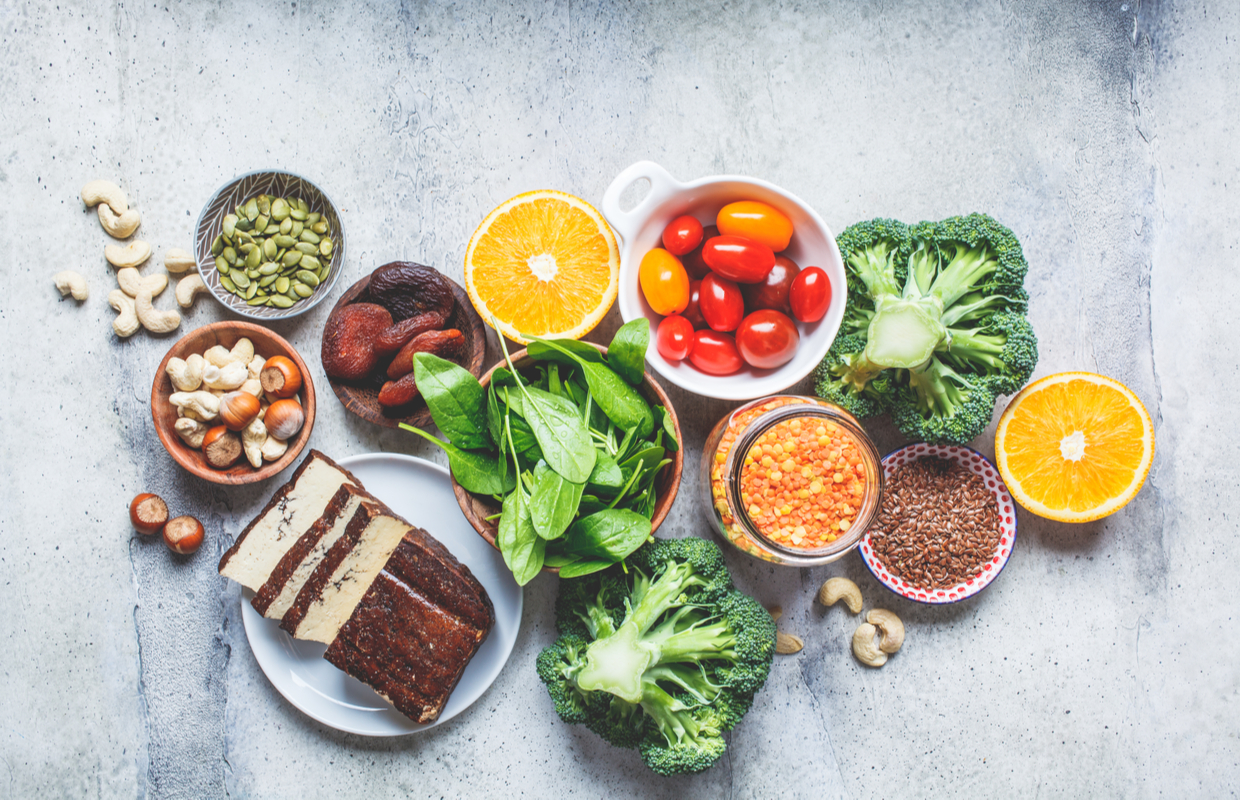
Tiredness, shortness of breath and heart palpitations are all symptoms you may have an iron deficiency. A simple blood test can confirm it and, if you are, you can up your intake by adding red meat, kidney beans, dried fruit, nuts and dark, leafy greens to your diet.
J IS FOR…. JUICING
Making juices and smoothies is one of the tastier ways to keep your immune system ticking along nicely, but it’s best to make your own, rather than getting shop-bought ones which are often pasturised and therefore lack nutrients.
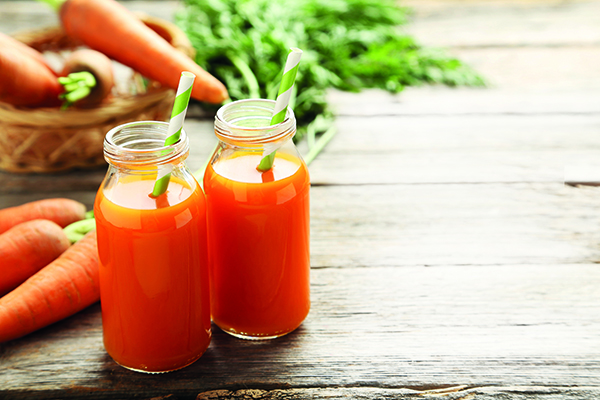
TRY IT: Iosune Robles, certified health coach and creator of Simple Vegan Blog, recommends trying this juice to get your immune system firing on all cylinders:
Add 60g of spinach, orange segments from two oranges, two chopped celery stalks and 2cm of peeled and chopped ginger root into a juicer. Strain the juice for a better texture, though this is optional.
K IS FOR… KEEPING CALM
OK, we cheated a bit as this ought to have been for C (but how could we not have had vitamin C there!?). However, keeping calm – and not always carrying on – can really help with boosting your immune system.
‘When your body has a stressful response, it goes into “fight or flight” mode and suppresses your immune system. Not only does this have a negative impact on your mental health, but your overall health may be compromised too; a weakened immune system could make the body more vulnerable to bacteria and viruses,’ says Thomas Hal Robson-Kanu.
TRY IT: Do slow, deep breathing a couple of times a day, or any time you feel yourself getting stressed. There are also lots of supplements designed to help you relax.
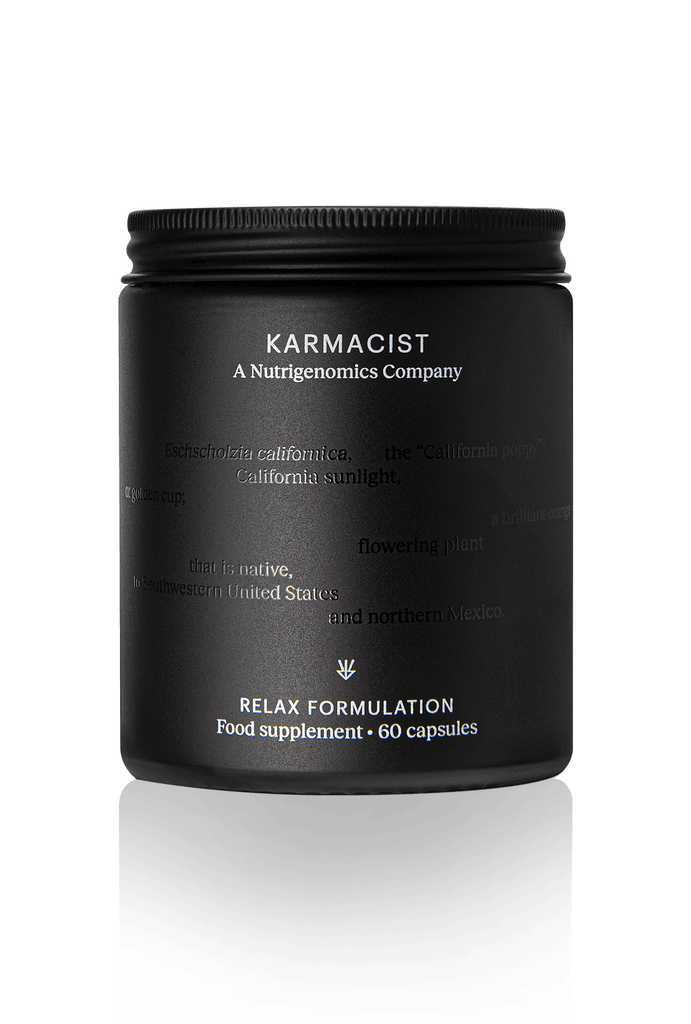
We like KARMACIST RELAX (£40). The key ingredient, ashwagandha, has been shown to limit stress-causing inflammation at a genetic level, while California poppy, turmeric, passionflower and lavender contribute towards feelings of calmness.
L IS FOR… LOWERING STRESS
Stress and anxiety can have a physical effect on your body, including a negative impact on your natural defences. This is particularly true if you are stressed over a long period of time.

When stressed, your immune system’s ability to fight off antigens is reduced. You’re also more likely to make unhealthy choices, such as eating junk food and staying up late, further hindering your immune system’s ability to function.
It’s a good idea to find a few stress-lowering tips that work for you. Breathing techniques, yoga or meditation are all good, or simply finding 10 minutes to have a cup of tea and some alone time can help to reduce stress, subsequently boosting your immune system.
M IS FOR… MANUKA HONEY
Manuka honey has proven antimicrobial properties, thanks to high levels of methylglyoxal (MGO). ‘The strength of our honey is measured from 30-1,100 MGO,’ says Matthew Steele from Manuka Doctor.
‘Scientists generally agree that MGO is the best way to establish antimicrobial activity.’ Under New Zealand law, there are two classifications of Manuka: multifloral, which means bees visited the manuka bush as well as other floral sources near the hive; and monofloral, which is max-strength and produced by bees that mainly collect nectar from the manuka bush itself.
‘To be monofloral, the honey must meet a higher level of two of the four naturally occurring markers and meet the pollen test,’ says Matthew.
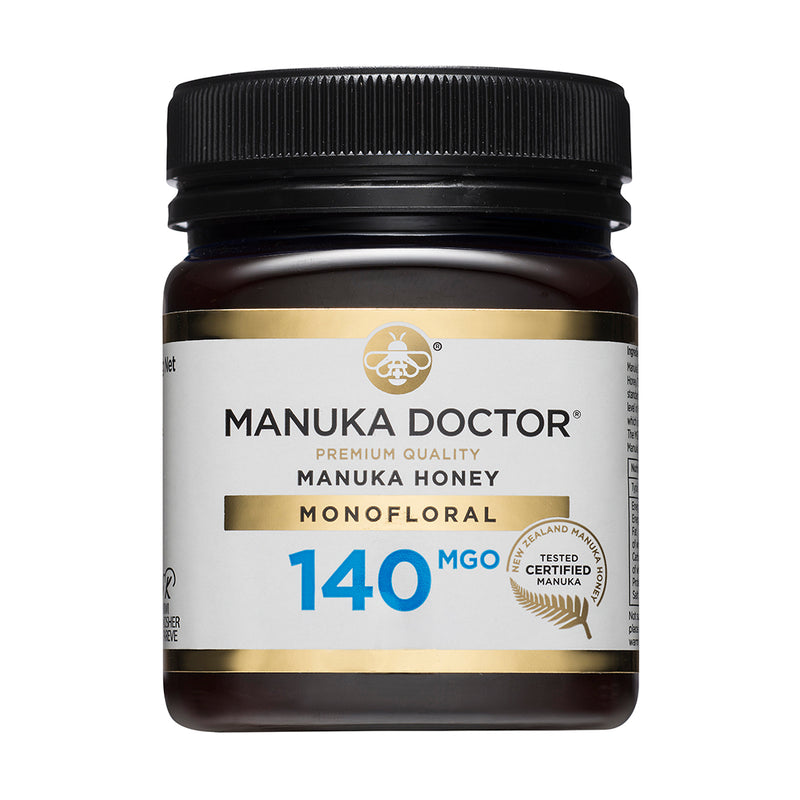
TRY IT: Manuka Doctor 140 MGO Manuka Honey 250g (£50).
N IS FOR… NEBULISING
You may not have heard about this but nebulising with hydrogen peroxide is a must, not only for beating respiratory infections, but nipping them in the bud.
‘I advise people to nebulise using a three per cent hydrogen peroxide solution, for 30 minutes, three times a day if they have a virus, or more often if needed,’ says Dr Thomas E Levy, cardiologist and author of more than 30 health books, including Curing the Incurable and Stop America’s #1 Killer!.
Hydrogen peroxide is a natural antiviral agent and kills off pathogens in your upper respiratory tract. Below is a short video of Dr Levy describing nebulising, alongside the benefits of vitamin C for respiratory infections and cancers.
Download Dr Thomas E Levy’s new ebook, Rapid Virus Recovery, for free at rvr.medfoxpub.com
https://www.youtube.com/watch?v=v67xZGYFZF4
O IS FOR… OLIVE LEAF EXTRACT
Olive leaf extract is known to boost the number of friendly bacteria in your gut, so your natural defences are stronger. It can also kill bacteria and cut off the supply of amino acids to viruses, too, preventing them growing.
Some studies have shown that strains of bacteria including E. coli, S. aureus and K. pneumoniae can be completely destroyed within three hours of exposure to a 0.6 per cent concentration of olive leaf extract –powerful stuff!

TRY IT: Higher Nature Olive Leaf (£49.95 for 90 vegetable capsules). Also, find it in KARMACIST IMMUNITY (£39.99 for 30).
P IS FOR PAU D’ARCO
This bark from a tree in South America has been used by natural healers to treat fever and inflammation since 1873. Pau D’arco contains the compounds lapachol and beta-lapachone, both of which contain antiviral and antibacterial properties.

TRY IT: Rio Amazon Tea Pau d’Arco Tea (£6.99) is prepared using only certified inner bark from the ‘cambium’ layer of giant hardwood trees, native to the Amazon rainforest. The process is sustainable and the bark is “harvested”, causing no permanent damage to the tree.
Q IS FOR QUERCETIN
In vitro studies and some animal models have shown that quercetin, a polyphenol derived from plants, has a wide range of anti-inflammatory and antiviral properties. Rhinovirus, which is responsible for the majority of common colds, is inhibited by quercetin supplementation.
Quercetin-type flavonols, the most abundant of the flavonoid molecules, are found in a variety of foods including apples, berries, brassicas, capers, grapes, onions, tea, tomatoes, and many seeds and nuts.
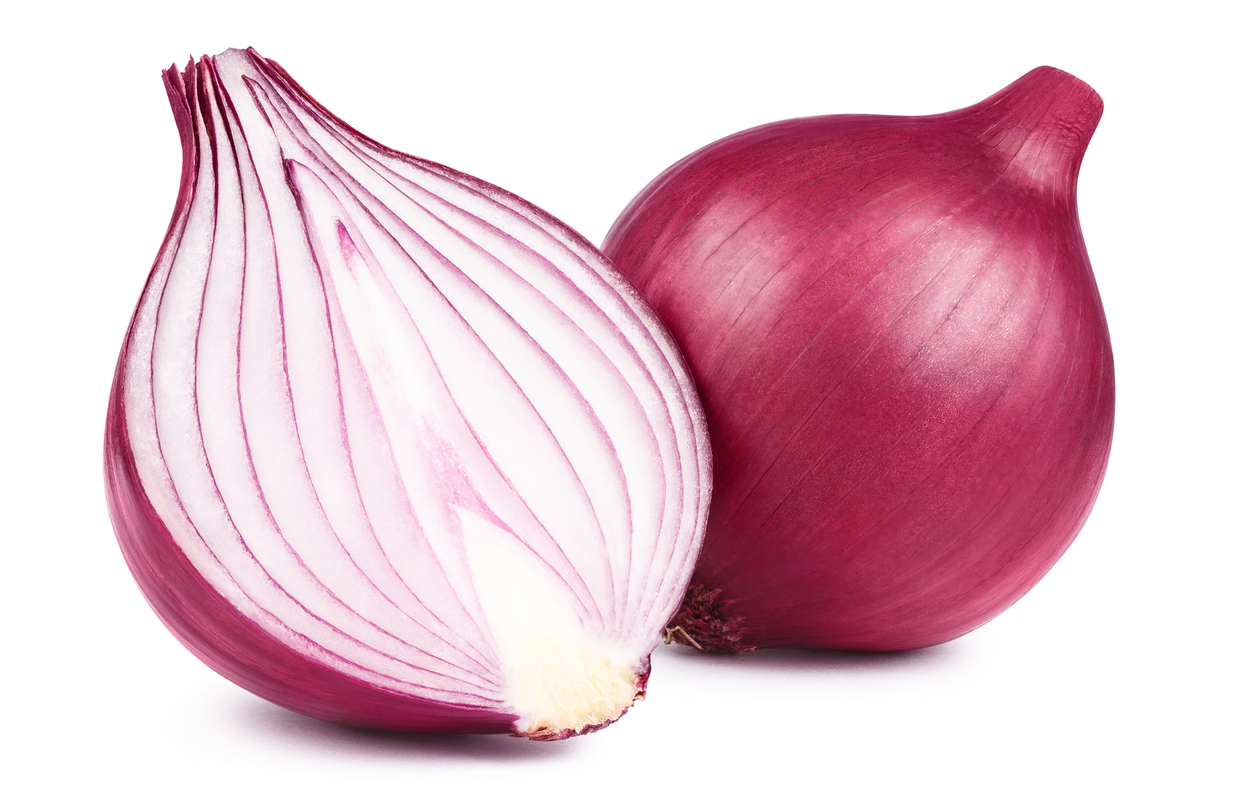
In red onions, higher concentrations of quercetin are found in the outermost layers and in the part closest to the root. One study found that organically grown tomatoes contained 79 per cent more quercetin than chemically grown ones. Cooking quercetin-rich foods doesn’t decrease the level of flavonoids, so fry away!
R IS FOR RESVERATROL
This antioxidant is found in the skins of red grapes, as well as blueberries, cranberries and peanuts. It can also be found in red wine.

However, studies show that resveratrol concentrations in wine can range from negligible to around 1.979 milligrams per litre, and you’d likely need to consume at least 1 gram of resveratrol (1,000 milligrams) daily to experience any of the significant therapeutic benefits!
TRY IT: If you’re avoiding alcohol this Christmas (remember, too much dampens your immunity) try Biona Organic Red Grape Juice (£3.99). It’s made from 100 per cent certified organic grapes and nothing else.
S IS FOR… SLEEP
Plenty of shut eye is crucial for staying well and giving your immune system a fighting chance to do its job. ‘While sleeping, your body goes into recovery mode. This allows your white blood cells to regenerate and hunt down any diseases that may be in your body.
‘Many studies have shown that people who don’t get enough sleep are more prone to illnesses, so it’s important that you give your body time to recuperate,’ says Thomas Hal Robson-Kanu.
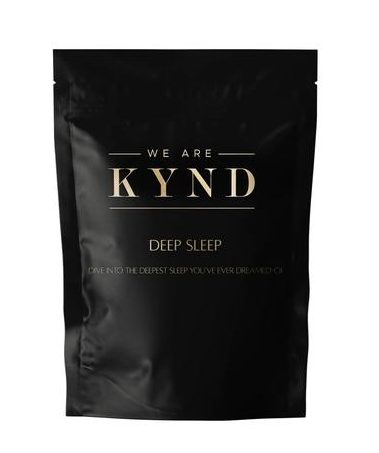
TRY IT: We Are Kynd DEEP SLEEP Capsules (£32.99) are for you if you often wake in the night. They contain valerian root, passionflower, California poppy and vitamin B6 – all known to improve sleep quality and duration.
T IS FOR… TURMERIC
Turmeric’s active ingredient, curcumin, is a potent anti-inflammatory that helps your immune system through naturally calming symptoms of the flu and cleansing your respiratory tract.

TRY IT: The Turmeric Co. Raw Turmeric Vitamin C & D3 shot (£31.50) combines raw turmeric with 1,000mg vitamin C, an impressive 3,000 IUof vitamin D3, coconut nectar and cinnamon.
The tropical-flavoured drink comes in a convenient 60ml shot and is also cold-pressed to maintain the benefits of the ingredients, plus it’s vegan-friendly.
U IS FOR… UBIQUINOL
Ubiquinol, the more easily absorbed form of CoQ10, plays a vital role in boosting your immune system as the tissue and cells involved in immune function need a lot of energy – and ubiquinol helps power them.
The findings of a study published in January 2019 found that CoQ10 levels were significantly lower in people with acute influenza infection than in healthy people.
The objective of the clinical trial, randomised over three flu seasons, was to determine whether acute infection is associated with depletion of CoQ10, which the findings supported.
Dietary sources include oily fish, organ meats and wholegrains. Most people get enough through diet. However, supplementation can be useful if you’ve over age 50, as CoQ10 naturally depletes over time.
A typical dosage is 30-90mg per day, but the recommended amount can be as high as 200mg per day. CoQ10 is fat-soluble, so it’s best absorbed when taken with a meal containing healthy oils/fats.
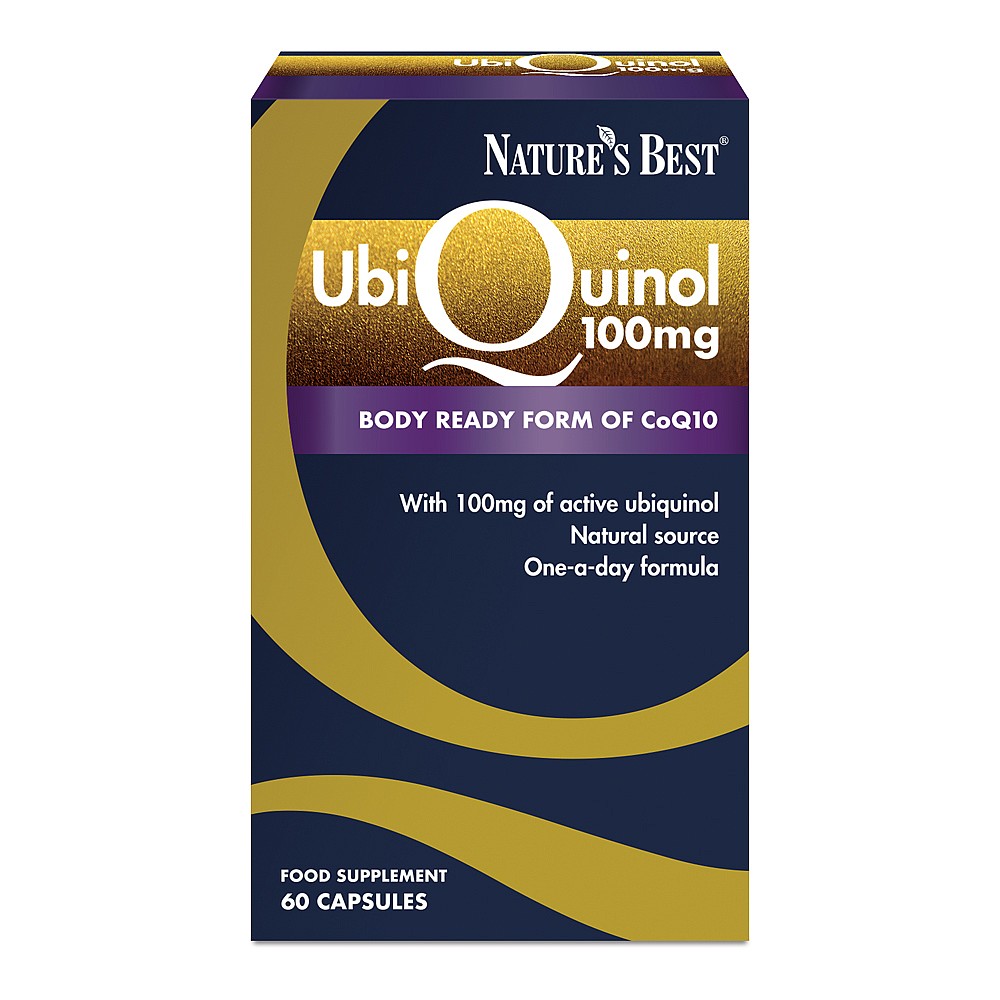
TRY IT: Nature’s Best Ubiquinol 100mg (£34).
V IS FOR…VALERIAN
While not directly having an impact on your immune system, valerian has plenty of studies behind it showing it helps you sleep and, as we’ve seen above, sleep is crucial for strong immunity.
This perennial plant, native to Europe and Asia, is a member of the Valerian aceae family. Get it either as a tincture or tea.

TRY IT: A.Vogel Dormeasan Valerian & Hops (from £4.75) is made from extracts of freshly harvested, organically grown valerian root and hops.
W IS FOR… WHOLE PLANT FOODS
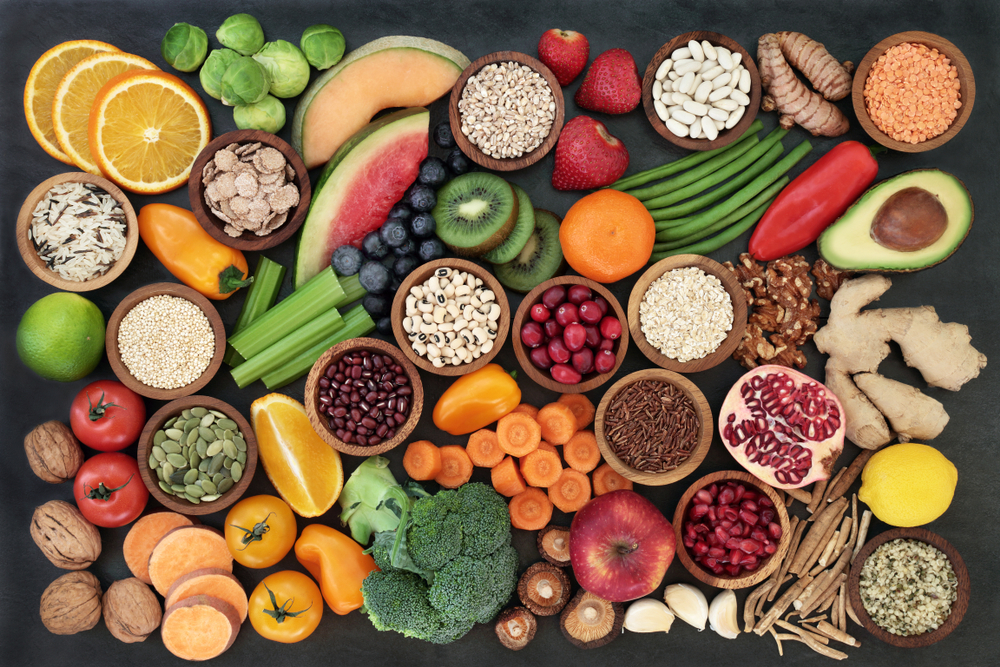
Whole plant foods – fruits, vegetables, nuts, seeds and legumes – are rich in nutrients and antioxidants. These keep your cells, including those in your immune system, functioning at an optimal level.
The antioxidants in these foods help decrease inflammation by combatting unstable compounds called free radicals. If in excess, these can cause inflammation.
Whole plant foods are also typically higher in fibre, and your gut bacteria feed on these fibres and create short-chain fatty acids. These help with boosting your immune system to protect against pathogens. The key is to eat a wide variety of plants, rather than focus on a single food item.
Tim Spector, professor of Genetic Epidemiology, recommends 30 different types of plants a week, with a focus on unprocessed, unrefined foods. Try beetroot, mushrooms, broccoli, spinach, lentils, quinoa and sweet potato.
X IS FOR…XYLITOL
Ok, so while xylitol might not be directly helpful for boosting your immune system, we know too much sugar has been shown to negatively impact immunity. So, it makes sense to swap sugar for a naturally sweet substitute, and xylitol is a great choice.
It comes from plants and doesn’t raise your blood glucose levels. While once a rare “alternative” ingredient, these days you can find it in most supermarkets.
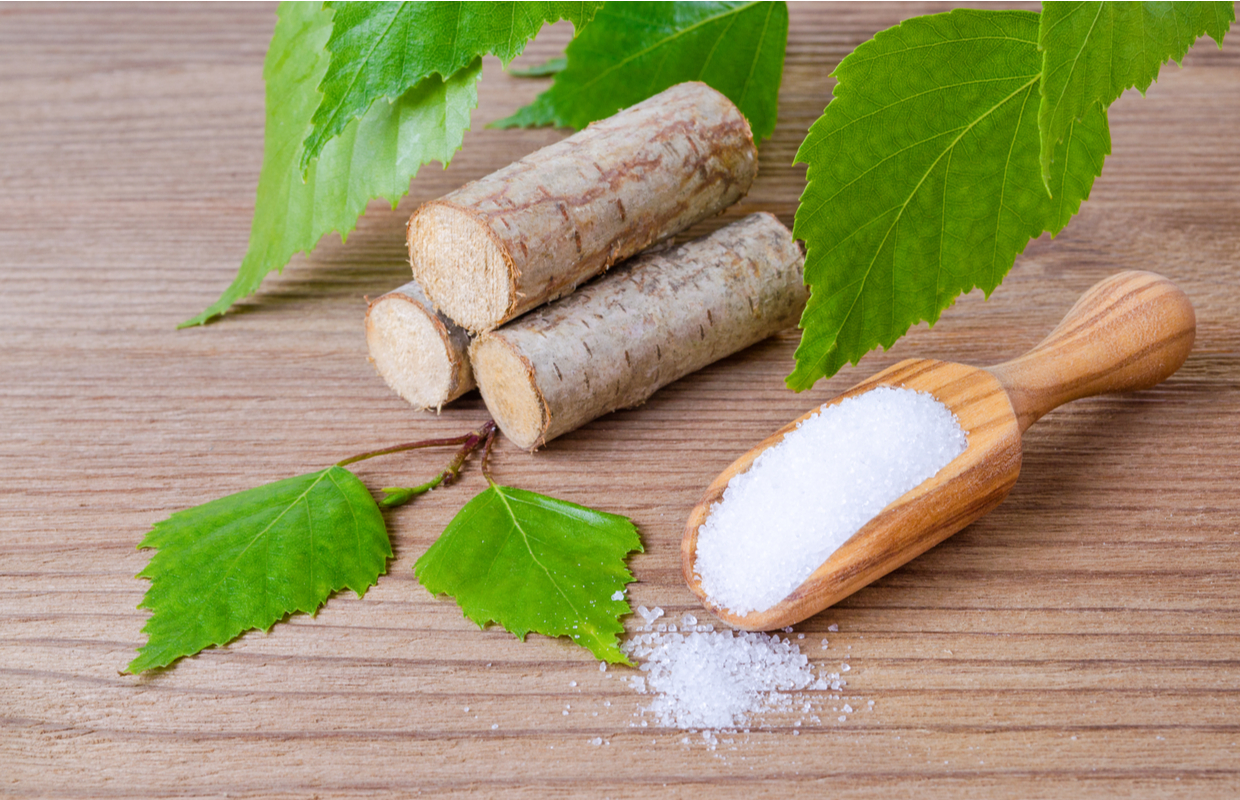
Use it in baking and added to tea as the structure and taste are virtually the same as table sugar. Just don’t go overboard as too much can have a laxative effect.
Y IS FOR… YOGHURT
Some types of yoghurt contain probiotics, microorganisms that help support the immune system. Yoghurt is made through the fermentation of milk, during which probiotics develop.
The probiotics Bifidobacteria and Lactobacillus may strengthen your immune system and reduce the likelihood of contracting an illness.
A 2015 review found that probiotics significantly reduce the number of upper respiratory tract infections and make them less severe. However, many yoghurts are pasteurised, which kills off the beneficial bacteria. Look for yoghurts that contain live, active cultures, which should be on the label.

TRY IT: Add Arla Skyr Creamy 5% Fat (£1.90) to a warming soup or enjoy with some berries at breakfast.
Z IS FOR… ZINC
Zinc is super important for strong immunity. It is up there with vitamins C, D and K plus magnesium for boosting your immune system. According to the NHS, you need 7mg per day and more during times of illness.
‘Zinc can help heal wounds, keep the immune system strong and help keep inflammation under control,’ says Lola Biggs, dietitian at Together Health. ‘It is well-known for helping minimise symptoms of a cold and increases the activation of cells responsible for fighting infections.’
Our bodies can’t make zinc so we need to get it from diet or a supplement. You can find it in wholegrains, meat, cheese, dairy, beans and lentils, nuts and seeds, and shellfish.

TRY IT: A healthy, balanced diet should give you all the zinc you need. However, some vegans, vegetarians and those with digestive disorders might need extra. Together Health Bio-Zinc (£9.99) is rich in flavonoids, polyphenols, ursolic acid, essential oils and tannins.




